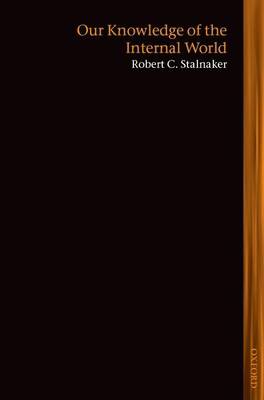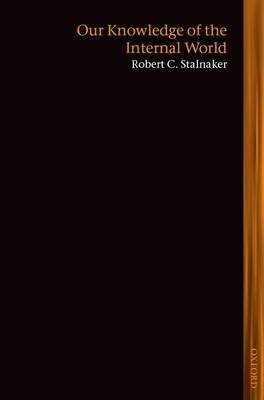
Bedankt voor het vertrouwen het afgelopen jaar! Om jou te bedanken bieden we GRATIS verzending (in België) aan op alles gedurende de hele maand januari.
- Afhalen na 1 uur in een winkel met voorraad
- In januari gratis thuislevering in België
- Ruim aanbod met 7 miljoen producten
Bedankt voor het vertrouwen het afgelopen jaar! Om jou te bedanken bieden we GRATIS verzending (in België) aan op alles gedurende de hele maand januari.
- Afhalen na 1 uur in een winkel met voorraad
- In januari gratis thuislevering in België
- Ruim aanbod met 7 miljoen producten
Zoeken
Our Knowledge of the Internal World
Robert C. (Massachusetts Institute of Technology) Stalnaker
€ 39,45
+ 78 punten
Omschrijving
Robert Stalnaker opposes the traditional view that knowledge of one's own current thoughts and feelings is the unproblematic foundation for all knowledge. He argues that we can understand our knowledge of our thoughts and feelings only by viewing ourselves from the outside, by seeing our inner lives as features of the world as it is in itself.
Specificaties
Betrokkenen
- Auteur(s):
- Uitgeverij:
Inhoud
- Aantal bladzijden:
- 158
- Reeks:
Eigenschappen
- Productcode (EAN):
- 9780199592036
- Verschijningsdatum:
- 1/07/2010
- Uitvoering:
- Paperback
- Afmetingen:
- 137 mm x 204 mm
- Gewicht:
- 196 g

Alleen bij Standaard Boekhandel
+ 78 punten op je klantenkaart van Standaard Boekhandel
Beoordelingen
We publiceren alleen reviews die voldoen aan de voorwaarden voor reviews. Bekijk onze voorwaarden voor reviews.









